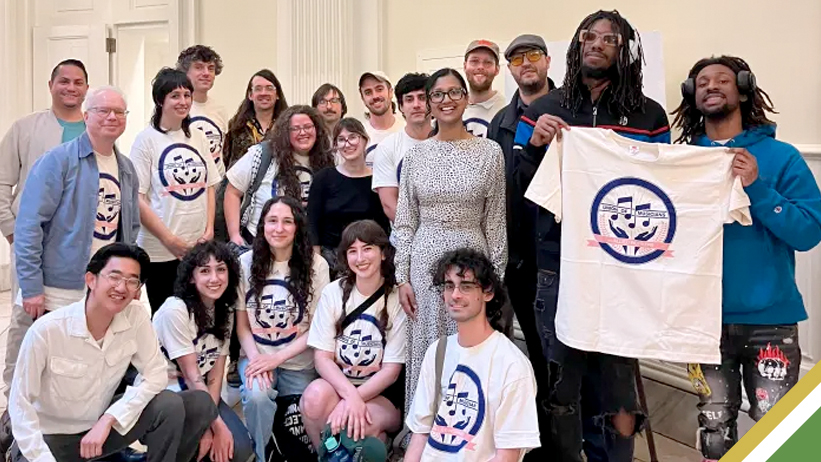In a powerful show of solidarity with working artists, New York City lawmakers have passed a resolution supporting the Living Wage for Musicians Act—a federal bill designed to increase streaming royalties for musicians. Spearheaded by Council Member Shahana Hanif, Resolution 368 pushes for direct payouts to artists on top of current streaming compensation, a major step toward reshaping how digital platforms like Spotify and Apple Music value musical labour. The resolution marks a turning point in the fight for fair artist compensation in the streaming era, especially as platforms report record profits while many creators struggle to earn minimum wage.
“In the music capital of the world, artists deserve fair pay and dignity,” said Hanif, pointing to the current system that pays artists less than a third of a penny per stream. The resolution is a major win for the United Musicians and Allied Workers (UMAW), the grassroots organization that has led the charge since 2020, calling out streaming giants for exploitative models. UMAW organizer Joey La Neve DeFrancesco hailed the decision as “a huge win for NYC musicians,” and signalled plans to push similar resolutions in other major cities as momentum builds to reintroduce the bill in Congress.
The Living Wage for Musicians Act was originally introduced by Rep. Rashida Tlaib and former Rep. Jamaal Bowman, in direct collaboration with UMAW. Their goal is to secure a minimum of one cent per stream in new royalties—something they say could stabilize the livelihoods of thousands of working-class musicians across the country. For a city like New York, which boasts over 14,000 active musicians, this measure could significantly reshape the cultural and economic landscape of the industry.
Despite prior setbacks—such as UMAW’s 2020 “Justice at Spotify” campaign—this new resolution suggests a rising tide of political will behind artists’ rights. As Council Member Carmen De La Rosa summed it up: “The Living Wage for Musicians Act is a lifeline… uplifting a vibrant workforce that deserves to be paid fairly for their art and talent.” The next step? National adoption. And if NYC’s move is any indication, change is not only possible—it’s coming.












